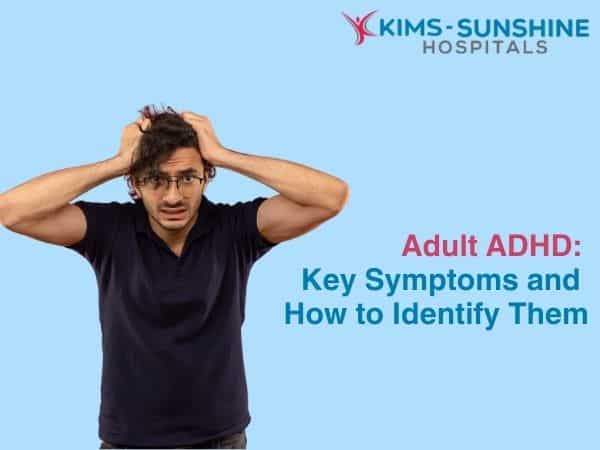
Adult ADHD: Key Symptoms and How to Identify Them

ADHD or attention deficit hyperactivity disorder is normally seen to occur in young children but it can also strike anytime in adulthood. For some individuals, symptoms do not present till after they attain adulthood. We don’t know why this happens. Much of the signs and symptoms are similar to what is observed in young children but there may be subtle differences with far reaching effects when it comes to adults. This is mainly because we have more commitments and responsibilities to fulfill as we grow older.
How Does ADHD Manifest In Adults?
The traits that stand out the most are being hyperactive and impulsive, being inattentive or a combination of both. These can gravely affect performance at work or university or any other enterprise the individual is a part of. These people may find it hard to stay in a stable relationship, take on way more than they can chew when it comes to work or commitments and may not be able to finish any major endeavour that they undertake. Being impulsive means they will prioritise pleasure immediately over rewards which may come in the future. These symptoms are present in adults along with sleep issues. Symptoms generally tend to go away or get better if diagnosed and treated earlier but not paying attention- that will only get worse as someone gets older. In India, ADHD affects more than 10% of the population. But one thing is for sure- if you were diagnosed with ADHD in childhood, then you can get affected when you are an adult too.
ADHD Symptom Checklist For Adults
This checklist can help you understand what may happen but is in no way a definitive diagnosis. Nevertheless, watch out for these signs
- Extreme forgetfulness.
- Getting distracted very easily.
- Time management is poor.
- Not being able to concentrate.
- Not being organised about work schedules.
- Having angry outbursts or extreme mood swings.
Conclusion
A doctor can help you out by taking a few tests, looking at your school report cards and also ask you to give them a detailed outline of when and for how long you had specific symptoms. All of us have had to deal with ourselves being fidgety or inattentive or hyperactive at times but having any of these traits does NOT mean you have ADHD. It is hard to diagnose but there are some coping strategies and medications that work very well in managing symptoms effectively.






